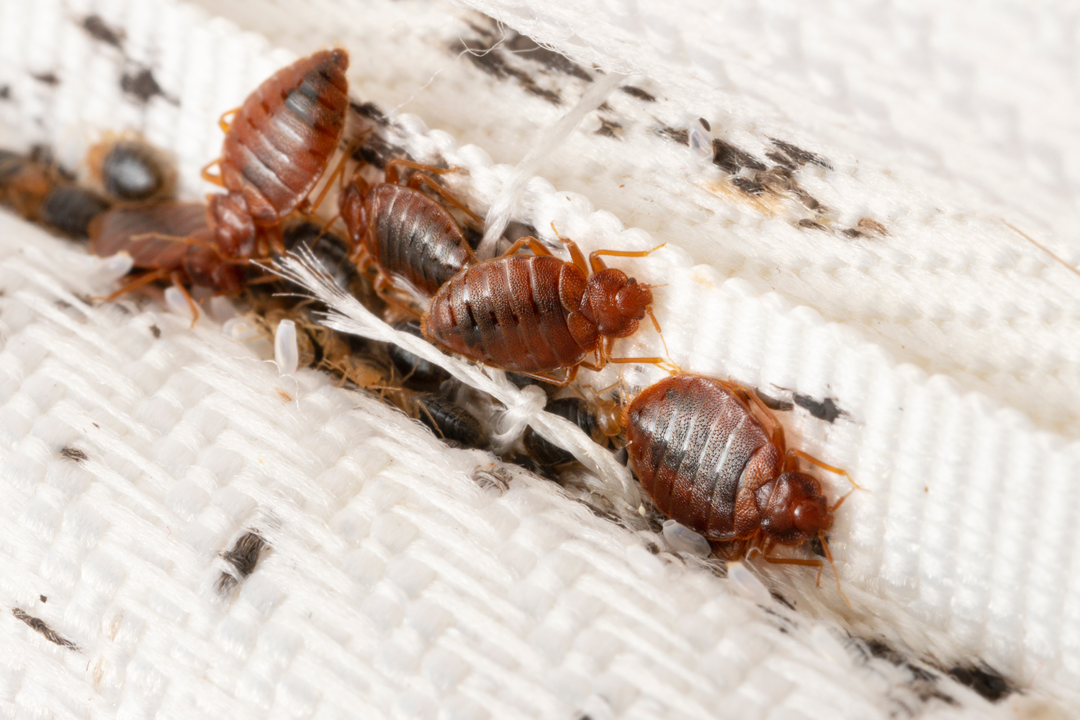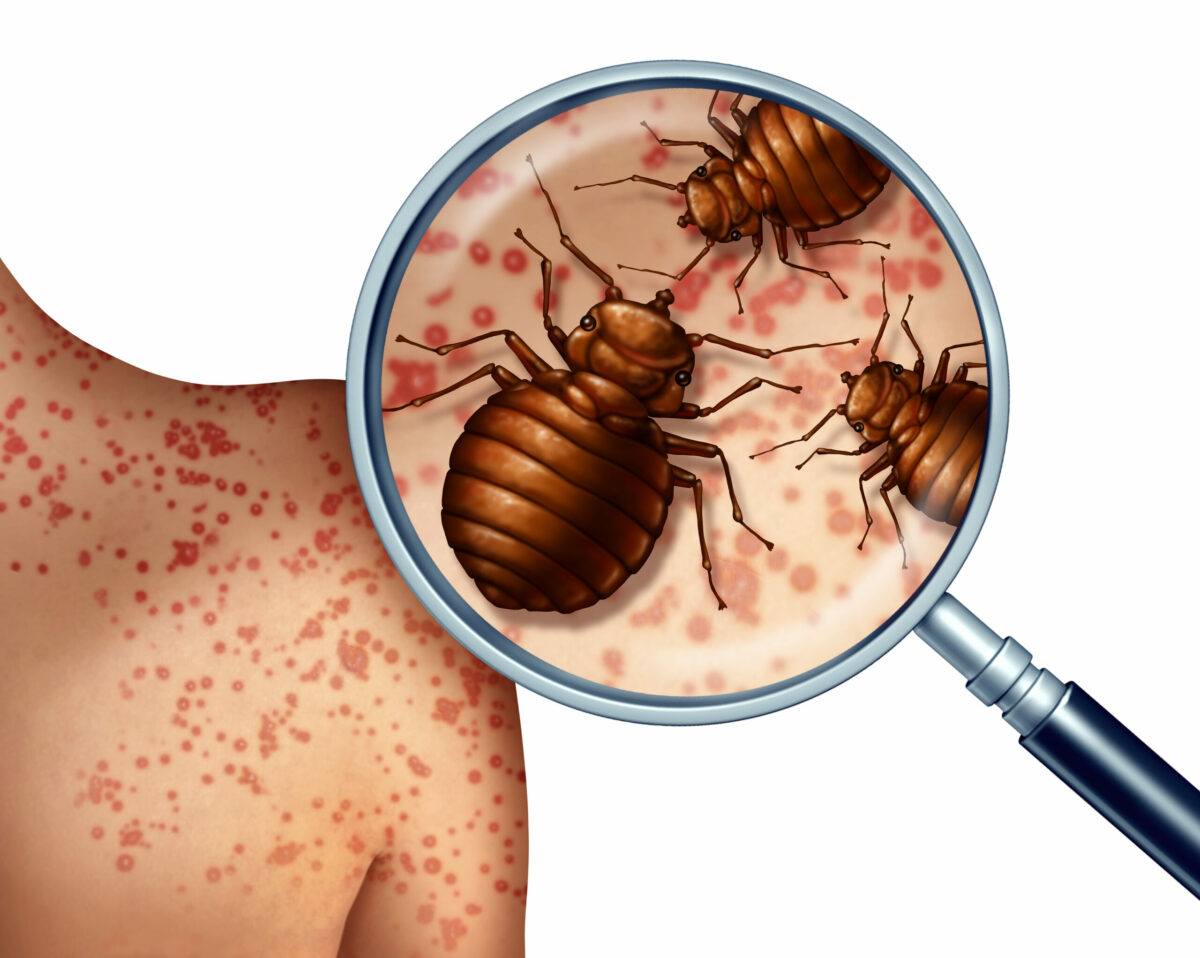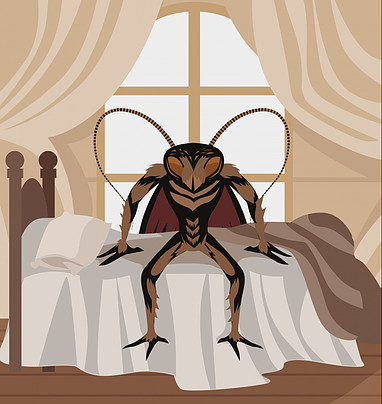Bed bugs are small, elusive insects that feed on human blood, usually at night. Originally found in caves where they fed on the blood of bats, they have evolved over time to become pestilential to humans, feeding primarily at night when their hosts are asleep.
- Understanding their habits can help us prevent their proliferation. Bed bugs can survive up to a year without feeding, a testament to their resilience; their eggs are resistant to most common bug sprays and can survive in hostile environments, waiting to hatch when conditions improve.
- As for risks, while they aren’t known to transmit diseases, their bites can lead to skin rashes, psychological effects, and allergic symptoms. Besides, they are particularly problematic for businesses like hotels and hostels, where a single infestation can ruin the reputation and customer trust.
- They are also notoriously difficult to eradicate, due to their capacity to hide in tight cracks and crevices and their resistance to common pest control methods. Altogether, these aspects make bed bugs a considerable risk for both individuals and businesses, emphasizing the need for effective preventive measures and extermination methods.
- Understanding their habits, risks, and resilience is the first step towards managing and eventually eliminating an infestation.
Comparative Analysis of Top Insecticides for Bed Bugs
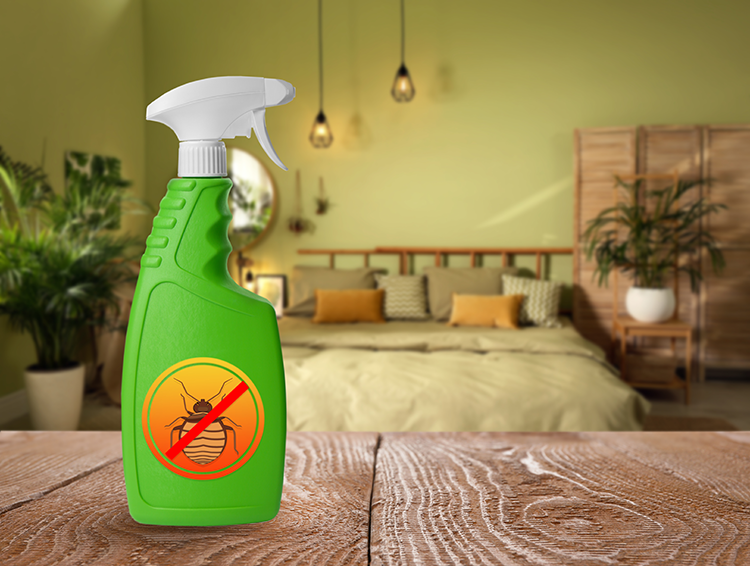
- In recent years, the resurgence of bed bugs has become an increasingly significant issue, necessitating a comprehensive analysis of the top insecticides used to combat these pests. Among the notable insecticides in the market today, three stand out when it comes to bed bug eradication -Pyrethroids, Neonicotinoids, and Insect Growth Regulators (IGRs).
- Pyrethroids, including deltamethrin and permethrin, are admired for their quick-acting nature and residual effects. These synthetic chemical compounds, modeled after the naturally occurring chemical, pyrethrin, affect the nervous system of bed bugs leading to a swift execution.
- Unfortunately, some bed bug populations have developed resistance against Pyrethroids, leading to the exploration of other alternatives like Neonicotinoids. Neonicotinoids such as imidacloprid and acetamiprid are a new class of insecticides that act on the nicotinic receptors of insects, causing paralysis and eventual death.
- They have recently gained popularity due to their effectiveness against pyrethroid-resistant bed bugs. On the other hand, IGRs like hydroprene and methoprene are known for their unique mode of action.
- Instead of killing the bugs outright, they interfere with the bugs’ life cycle, disrupting their growth and development, rendering them sterile and preventing infestations from proliferating.
- However, the downside to IGRs is that they are slow-acting and may not be ideal for immediate relief. In conclusion, although each type of insecticide has marked strengths and weaknesses, the comparative analysis reveals that a combination approach, utilizing each one’s unique strengths, could offer a more sustainable solution in managing bed bug infestations.
- Therefore, pest control practitioners need to consider this integrated approach for a more effective and holistic bed bug management strategy.
Criteria for Selecting the Best Insecticide: Safety, Efficacy, and Cost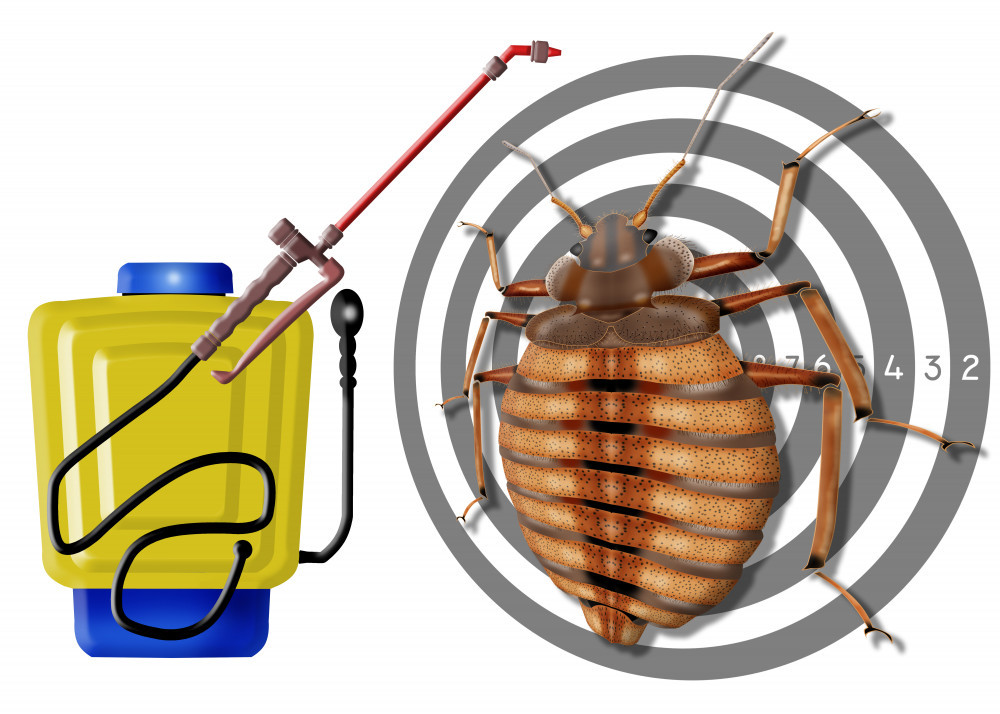
Selecting the best insecticide requires careful consideration of several critical factors, which include safety, efficacy, and cost. First and foremost, safety should never be compromised.
This refers not only to the safety towards humans and pets but also its ecological impact. Thus, an ideal insecticide should be non-toxic or less-toxic to non-target organisms and have minimum residue in the environment.
Secondly, the efficacy of the insecticide is a paramount factor. In other words, it should efficiently lessen or eradicate the pest populations without resistance development. This attribute is significantly vital in farming practices since ineffective pest control leads to decreased crop yields. Moreover, cost-effectiveness is also an important criterion.
It is recommended to compare different insecticide products in terms of costs per area against their effectiveness. A cheaper product might appear cost-effective initially, but if it requires frequent applications, then it may prove expensive in the long run. Check out my 5 most recommended products if interested.
Lastly, easy application, and often overlooked, the product’s shelf life should also be factored into choosing the best insecticide. Therefore, the best insecticide is not necessarily the strongest or the cheapest, but the one that provides a balance between safety, efficacy, and cost.
Spotlight on Natural Alternatives: Essential Oils and Their Efficacy
- Increasingly, attention is turning to natural alternatives for physical and emotional well-being, with essential oils being at the forefront of this shift. Derived from plants, essential oils are concentrated liquids that capture the plant’s scent and flavor, or its “essence.”
- They are rich in various beneficial compounds that contribute to their beneficial properties and high efficacy in addressing several health concerns. Used through methods such as aromatherapy, topical application, or even ingestion, essential oils offer a myriad of benefits, including relief from pain, improved digestion, enhanced focus, and reduced anxiety or stress.
- In addition, numerous studies have also affirmed the antimicrobial and anti-inflammatory potential of these natures’ essences.
- However, it’s essential to note that while their efficacy cannot be denied, usage guidelines should be followed; overuse or inappropriate use could lead to adverse effects.
- As a natural alternative, essential oils are gaining significant recognition for their therapeutic potential but should be used judiciously and complement professional medical advice for certain conditions.
- That being said, the spotlight on essential oils and their efficacy is not only a testament to nature’s healing prowess, but it also hints at a sustainable approach to health and wellness.
-
How to Use Essential Oils Safely and Effectively Against Bed Bugs
- Essential oils can serve as a natural, non-toxic alternative to chemical sprays in the battle against bed bugs. The essential oils most proven to kill bed bugs are cinnamon, lemongrass, clove, peppermint, citrus, and lavender. But using them requires caution: undiluted essential oils can cause skin irritation or an allergic reaction.
- For a safer usage, dilute one part essential oil with two parts water or alcohol. If you are worried about any potential allergic reaction, patch test a small diluted amount on your skin before proceeding with a larger application.
- Spray this mixture on your mattress, bedding, and around areas where you suspect bed bugs to be hiding. Frequent application is often necessary to effectively eliminate a bed bug infestation as these critters can be quite resilient.
- Please note that while essential oils can help in this battle, they may not completely eradicate a heavy infestation, and professional pest control may still be required.
- Always ensure that oils are out of reach from children and pets to avoid accidental consumption. Moreover, some essential oils like citrus can cause phototoxicity; therefore avoid exposure to direct sunlight after application.
- Remember, the key to using essential oils against bed bugs lies in the correct choice of oil, proper dilution and regular application.
-
Integrated Pest Management: Combining Chemical and Natural Methods
- Integrated Pest Management (IPM) is an approach that combines chemical and natural methods to effectively manage pests. One successful integration involves combining essential oils with green insecticides. This combination has proven to be highly effective in controlling pests while minimizing the use of synthetic chemicals, making it a sustainable and environmentally friendly solution for pest management.
Preventive Measures: Tips to Avoid Bed Bug Infestations
- To avoid bed bug infestations, it is important to take preventive measures. Regularly inspect your sleeping area for any signs of bed bugs, such as blood stains or dark spots.
- Keep your living space clean and clutter-free to minimize hiding places for bed bugs. Additionally, consider integrating essential oils with green insecticides as an effective approach in combating bed bugs.
Q&A
Q: What are the signs of bed bug infestation?
-
-
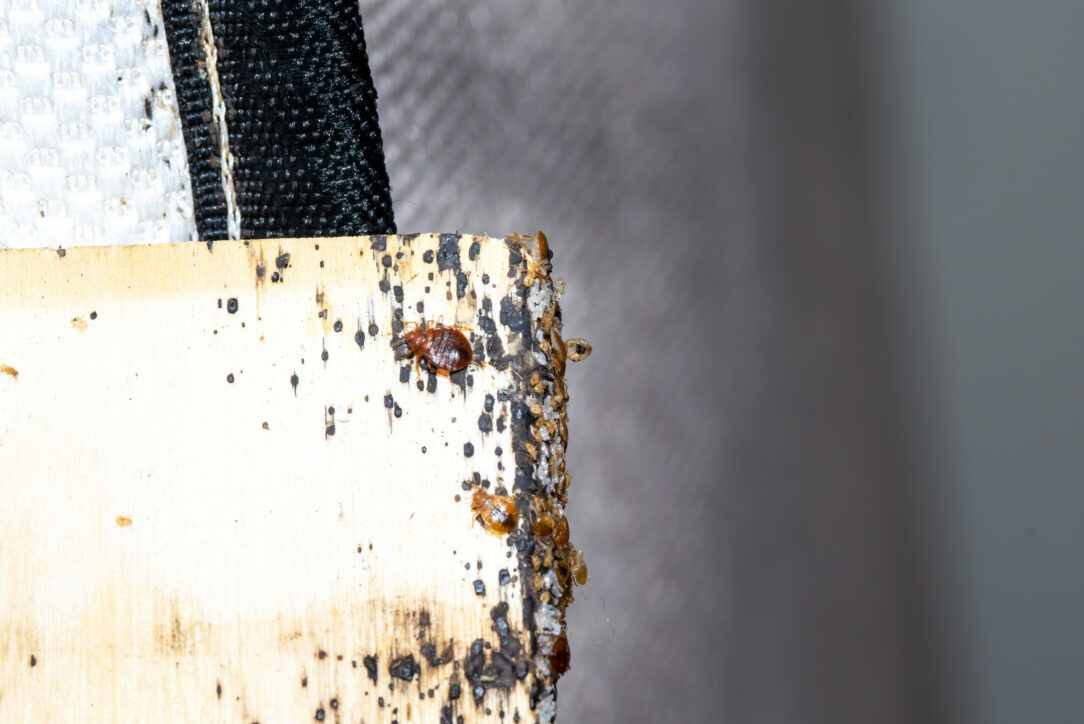 A: Some of the obvious signs of bed bug infestation include tiny blood stains on your bedsheets, dark or rusty spots of bed bug excrement on mattresses, bed frames, and beddings. You may also notice a musty odor emanating from the bugs’ scent glands. Other signs are bed bug eggs or discarded shells. Lastly, you may bear witness to actual live bed bugs. For more, check out When are bed bugs most active?
A: Some of the obvious signs of bed bug infestation include tiny blood stains on your bedsheets, dark or rusty spots of bed bug excrement on mattresses, bed frames, and beddings. You may also notice a musty odor emanating from the bugs’ scent glands. Other signs are bed bug eggs or discarded shells. Lastly, you may bear witness to actual live bed bugs. For more, check out When are bed bugs most active?
Q: What are some effective natural remedies to control bed bugs infestation?
A: Some of the effective natural remedies for managing bed bugs include using diatomaceous earth, a fine powder that dehydrates and kills bed bugs; heat treatment, which involves increasing the room temperature to a certain degree that bed bugs cannot tolerate; and using certain essential oils, such as tea tree oil or peppermint oil, which repel bed bugs.
Q: How can I get rid of bed bugs using home remedies?
A: To get rid of bed bugs using non-toxic home remedies, you can use substances like baking soda which can dehydrate and kill the insects. Regular vacuuming can also help to remove bed bugs from their hiding places. Always clean your home thoroughly and dispose vacuum bags cautiously into sealed bags to prevent the bugs from escaping.
Q: Can bed bugs become resistant to pesticide?
A: Yes, over time and with the excessive use of pesticides, bed bugs can become resistant to certain chemicals. This is why it is important to use a variety of methods including home remedies and professional pest control services, to effectively control a bed bug infestation.
Q: Are bed frame and mattresses the only hiding places of bed bugs?
A: While bed frames and mattresses are common hiding places for bed bugs, they can also infest other areas of your home. This includes carpets, curtain folds, cracks or crevices in the wall or floor, furniture, behind picture frames, and even stuffed animals. This makes managing a bed bug infestation a thorough process. For more, read our article on where bed bugs like to hide.
Q: How do professional pest control companies eliminate bed bugs?
A: Professional pest control companies typically perform an initial “bed bug inspection to identify areas of infestation and then use a combination of heat treatments, pesticides, and insecticide dusting to kill adult bed bugs and their eggs. Monitoring devices may also be used to ensure all bugs have been eliminated.
Q: Do all bed bugs bite and what do bed bug bites look like?
A: Yes, all bed bugs need to feed on blood to grow, and they do this by biting humans. Bed bug bites usually appear as red and itchy welts, typically in a row or cluster. However, while some individuals exhibit noticeable reactions to the bites, others do not show any symptoms at all.
Q: How effective is diatomaceous earth as a bed bug treatment?

A: Diatomaceous earth is very effective against bed bugs as it dehydrates them by absorbing the fats and oils from the bug’s exoskeleton, causing them to dry out and die. It’s a natural mineral dust that is completely safe for humans and pets but lethal for bed bugs.
Q: Can home remedies alone get rid of a severe bed bug infestation?
A: While home remedies can help in managing a mild bed bug problem, a severe infestation usually requires professional pest control services. This is due to the bed bugs’ ability to multiply quickly and hide in inaccessible locations. Consequently, effective bed bug control often requires a comprehensive treatment approach.
Q: Is it possible to prevent bed bugs infestations?
A: Yes, it is possible to prevent bed bug infestations. Precautionary measures such as regular inspection of your household, particularly the beddings and furniture, maintaining cleanliness, effective pest management, and promptly addressing any signs of infestations can significantly help to keep bed bugs at bay. Additionally, using bed bug-proof mattress covers and avoiding second-hand furniture also helps prevent infestations.
-


